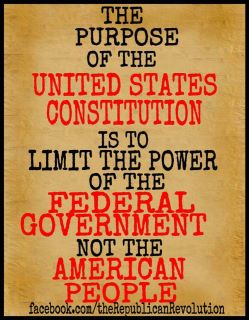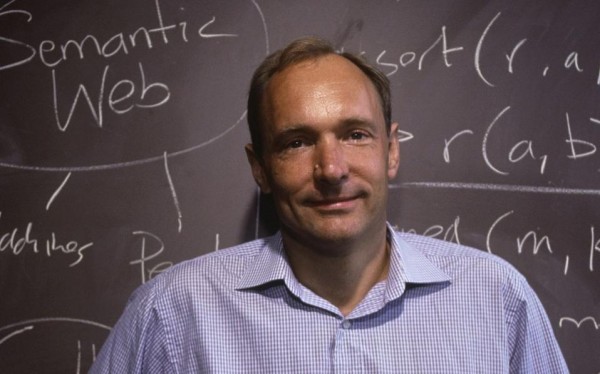Exclusive: web's inventor warns neutrality under sustained
attack
from governments and corporations
The inventor of
the world wide web believes an online "Magna Carta" is needed
to protect and enshrine the independence of the medium he created
and the rights of its users worldwide.
Sir
Tim
Berners-Lee
told the Guardian the web had
come under increasing attack from governments and corporate
influence and that new rules were needed to protect the "open,
neutral" system.
Speaking exactly 25 years after he wrote the first draft of the
first proposal for what would become the world wide web, the
computer scientist said:
"We need a global constitution
- a bill of
rights."
Berners-Lee's Magna Carta plan is to be taken up
as part of an initiative called
"the web we want", which calls on
people to generate a digital bill of rights in each country - a
statement of principles he hopes will be supported by public
institutions, government officials and corporations.
"Unless we have an open, neutral
internet we can rely on without worrying about what's happening
at the back door, we can't have open government, good democracy,
good healthcare, connected communities and diversity of culture.
It's not naive to
think we can have that, but it is naive to think we can just sit
back and get it."
<cut for brevity>
"The key thing is getting
people to fight for the web and to see the harm that a fractured
web would bring. Like any human system, the web needs policing
and of course we need national laws, but we must not turn the
network into a series of national silos."
Berners-Lee also starred in the London
2012 Olympics, typing the words "this is for everyone" on a computer
in the centre of the arena. He has stuck firmly to the principle of
openness, inclusivity and democracy since he invented the web in
1989, choosing not to commercialize his model. Rejecting the idea
that government and commercial control of such a powerful medium was
inevitable, Berners-Lee said it would be impossible:
"Not until they pry the keyboards from
our cold, dead fingers."
Creator of the web:
"Free to use
for everyone."
<cut for brevity>
The web
was first open to new users in 1991, and in 1992, the first browser
was created to scan and select the millions of documents which
already existed.
Although the web has seen the creation and loss of countless
fortunes, Berners-Lee and his team ensured that it was free to use
for everyone. Berners-Lee now works through various organizations to
ensure that the web is accessible to all and that the concept of the
neutrality of the net is observed by governments and corporations.
Full article at:
'The Web We Want'
(ReaderSupportedNews.org)
~~~~~~~~~
Feature Article:
Upgrading the Bill
of Rights for Global TeLeComm
by Christopher Rudy,
Heartcom
Services
The
Five Core Constitutional Freedoms
for the
United
Sovereigns
of Earth.
If we get this right - for global
US - all the other
universal rights for global self-governance
will naturally follow with common sense "Unity Conscience" (co-Operative
co-Creation).
"Congress shall make no law respecting an establishment of religion,
or
prohibiting the free exercise thereof;
or abridging the freedom
of speech, or of the press; or the right of the people
peaceably
to assemble,
and to petition the Government for a
redress
of grievances."
Redress:
redress v. 1. To set right,
remedy or rectify. 2. To make amends for.
n. 1. Satisfaction for wrong done; reparation. 2. Correction.
[<OFr. redresser.]
The Bill of Rights, succinctly expressed in the Constitution's First Amendment
above,
was to prevent
any decrease in universal sovereign rights by government.

This is what global Netizens love about our sovereign rights.
And it's what good American citizens have always loved.
The common sense of this noble vision gave birth to the
best model for public self-governance in world history
"If we can keep it"...
as
wise old Ben Franklin said.
This is the challenge facing humanity now.
We can 'upgrade' with global
TeLeComm
to optimize our healing, peace and civility,
our by default, our self-destructive habits
profit from dis-ease, war and devolution.
There is nothing more valuable that this vision of
core virtues at the heart of e-valuation
criteria
for upgrading the concept of 'representation'
(voting) with real-time, instant-everywhere
and interactive local-global TeLeComm;
the 'Family of Man' in a
global village.
"It is at all times necessary,
and more particularly so during the progress of a revolution
and until right ideas confirm themselves by habit,
that we frequently refresh our patriotism by reference to
First Principles".
- by Thomas Paine who sparked the American Revolution with
COMMON
SENSE,
the most successful pamphlet in history whose name and
flame
are the same
~~~~~~~~~
Freedoms of Assembly, Speech, Press, Religion
and the Right to Petition Government for a
response able redress of grievances.
"Conscience
is the most sacred of all property."
~ Chief
Architect of the Constitution, James Madison
|


